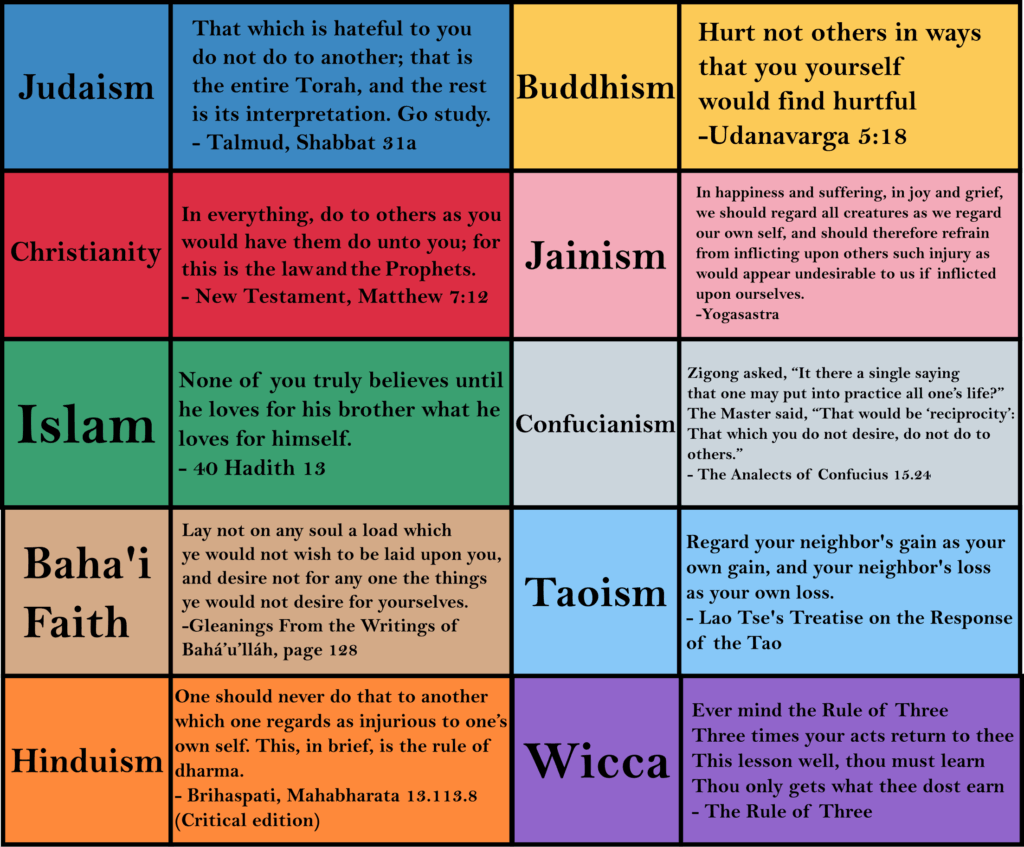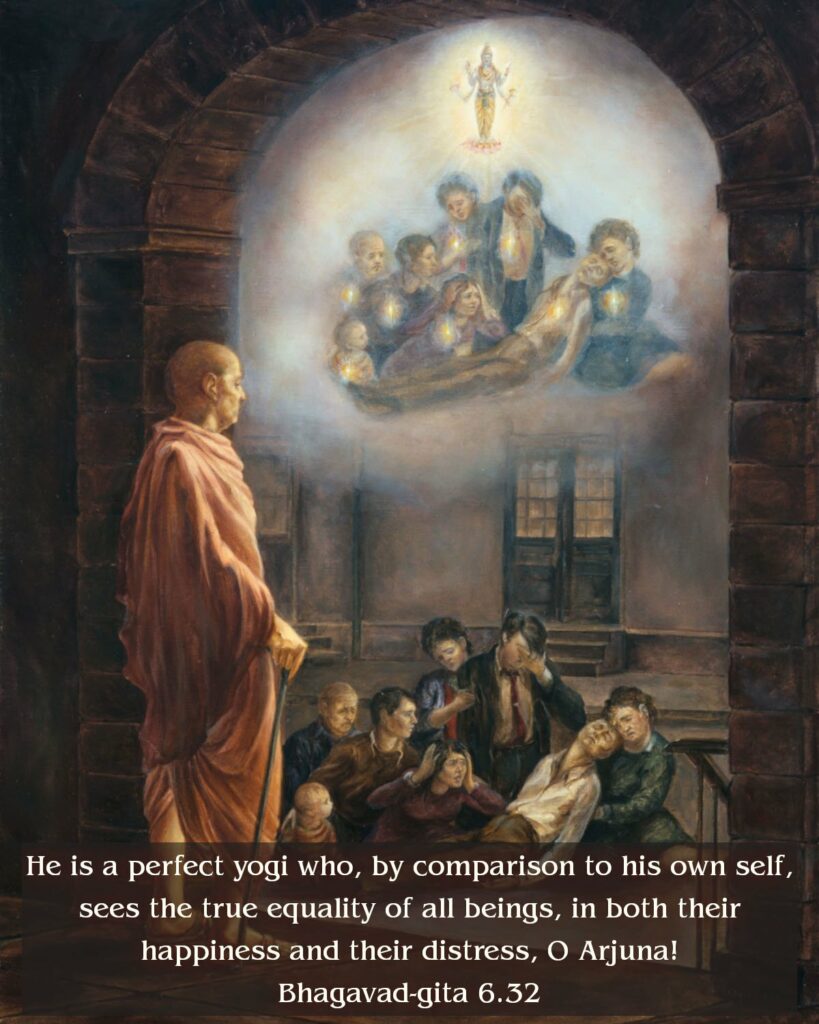आत्मौपम्येन सर्वत्र समं पश्यति योऽर्जुन |
सुखं वा यदि वा दु:खं स योगी परमो मत: || 32||
ātmaupamyena sarvatra samaṁ paśhyati yo ’rjuna
sukhaṁ vā yadi vā duḥkhaṁ sa yogī paramo mataḥ
ātma-aupamyena—similar to oneself; sarvatra—everywhere; samam—equally; paśhyati—see; yaḥ—who; arjuna—Arjun; sukham—joy; vā—or; yadi—if; vā—or; duḥkham—sorrow; saḥ—such; yogī—a yogi; paramaḥ—highest; mataḥ—is considered
Translation:
He who judges pleasure or pain everywhere, by the same standard as he applies to himself, that yogi is thought to be the highest.
Commentary:
The practical aspect of Vedanta is emphasised here. It is in action that philosophy has to be tested and proved. It may be easily said, “All is Self, the Lord is all.” How then should he act in the world? That is the question. The sincere aspirant should be true to himself in word and deed. He should speak only that which he knows, and practise that which he speaks. So should religious spirit permeate all the words and actions of its votaries. Otherwise, their words are of no use. It is the divergence between theory and practice that brings disrepute to a person. The man who speaks religion should be exemplary in his conduct. When it is accepted that Atma is the reality in all beings, what should be the practical conduct of the yogi? How should he think, feel and act? He should intimately feel that the joys and sorrows of all beings are just the same as his own. The pangs of hunger and the bereavement of other people are of the same nature as his own. He understands the sufferings of others not only of men but of animals and other beings in the same spirit as his own suffering. He shares the gladness of others, and he suffers the pains of others. Such universality of feeling distinguishes the yogi of the highest perfection. This is religion brought into the field of practical action.
The Lord exhorts mankind – “Oh Ye mortals desirous of attaining me! Love others as you love yourself, feel for others as you feel for yourself. Be full of kindness and compassion, and then only are you one with Me.” Thesis like ‘All is Brahman’ (Sarvam Khalvidam Brahma) has no meaning if the heart of man remains closed to the pains and pleasures of others. Man must be able to identify himself with others and partake of their joys and sorrows. The brotherhood of man taught in all religions is good. But here, the truth is enlarged to embrace all creation. The Gita and the Upanishads declare the unity of the whole universe by the presence of the Supreme Lord in everything. The teachings of the Gita have broken up all barriers not only between man and man, but also between man and all other beings. The yogi should see the same Atma everywhere. He is the best of yogis who has attained this intimate identity with every being in the universe.
Swami Vivekananda Says —
We cannot remain without action for a moment. Act! But just as when your neighbour asks you, “Come and help me!” have you exactly the same idea when you are helping yourself? No more. Your body is of no more value than that of John. Don’t do anything more for your body than you do for John. That is religion. “He whose efforts are bereft of all desire and selfishness has burnt all this bondage of action with the fire of knowledge. He is wise.” (BG 4.19) Reading books cannot do that. The ass can be burdened with the whole library; that does not make him learned at all. What is the use of reading many books?[Source]
Swami Turiyananda: “An excellent book again is the Chandi! The philosophy of the Chandi has established the unity of Brahman and Shakti. ‘She, the Divine Mother is the Absolute and yet the relative in the form of the universe. She pervades everything. Mahâmâya (the Great Illusion) has veiled everyone with delusion that Her play may continue undisturbed. She vouchsafes both worldly enjoyment and spiritual emancipation. Such is the theme of the book. King Suratha and the merchant Samadhi worshipped the Mother for three years before they realized their desires.
“How is it that we know, and yet cannot act? This is due to Her Mâyâ. She must be propitiated. ‘She being propitiated grants the boon of Freedom.’ Aye, without Her grace, no man can get out of this network of illusion. Only through worship can the common man realize the supreme beatitude, the state of universal consciousness. There is no other way.
“Speak to others even as you speak to yourself. That is to say, know every one as your own self. Do you ever get angry with yourself? Even so behave with others. But that would be possible only when you see your own Self existing in others. This is the spirit which underlies Swamiji’s doctrine of the worship of the poor, the forms of Nârâyana. Indeed, there is a plane of consciousness where everything appears as one’s own Self. And when one reaches that plane, there is no more any confusion for him.” (Source: Spiritual Talks by the First Disciples of Sri Ramakrishna)

Bhagavad Gita: Chapter 6 🔻 (47 Verses)
